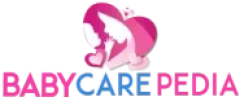Breastfeeding vs. Bottle Feeding: This question is a decision that every new parent must make. It is best answered before the baby is born, since breastfeeding must be established soon after birth to be successful.
Every new parent wants the best for their newborn baby. Most people are aware that the advantages of breastfeeding outweigh the benefits of formula feeding.
However, sometimes circumstances dictate the choice they make. Educating yourself about breastfeeding vs. bottle feeding can make the best decision for your Family.
Breastfeeding vs. Bottle Feeding Pros and Cons
1. Advantages of Breastfeeding and Bottle Feeding
A. For the baby:
1. Passes on mother’s antibodies to protect from illnesses
2. Perfect food for babies, exactly right nutritionally
3. Increased protection against many lifetime diseases, such as Type 2 diabetes, asthma, Crohn’s disease, multiple sclerosis, juvenile rheumatoid arthritis, and some cancers
4. Lower rates of sleep apnea through adulthood
5. Adults who were breastfed average higher IQs than those who were formula fed
6. Breast milk’s supply and composition are ever-changing to meet the needs of the growing baby
7. Lower rate of SIDS (Sudden Infant Death Syndrome) in breastfeeding babies
8. Breast milk is more easily digested, therefore, less colic, constipation, and diarrhea
9. Improves effectiveness of vaccinations
10. Babies who are breastfed show lower rates of obesity from infancy to adulthood
B. For Mother

1. Burns 500 more calories per day, resulting in faster pregnancy weight loss
2. breastfeeding decreases the likelihood of post-delivery hemorrhage
3. Breastfed babies show lower healthcare costs for childhood illnesses and diseases
4. Healthier baby means less time off needed from work if working outside the home
5. Lower rates of breast, uterine, endometrial, and ovarian cancers among mothers who breastfeed
6. Decreased need for insulin in diabetic mothers while the mother is breastfeeding
7. No preparation required – always warm and ready
8. Lower risk of heart attack, Type 2 diabetes, high blood pressure, high cholesterol, osteoporosis, and stroke
9. Often, there is a delay in the return of menstruation
10. Diapers are less smelly than diapers from formula-feeding babies
11. Increased bonding
12. More “green” than formula, producing less waste of resources (containers, labels, shipping)
Click here to see what other moms say are the advantages of breastfeeding
2. Disadvantages of Breastfeeding and Bottle Feeding
· A. For Bab – no disadvantages unless the mother has a disease that can be passed on through breast milk
B. For Mother
1. Requires a significant time commitment
2. Learning curve is difficult for some mother/baby combinations, causing frustration
3. Less freedom for a mother to be away from the baby unless she is willing to pump
4. For those who are returning to work, pumping may be inconvenient or not possible
5. Since breast milk is more easily digested, the baby may need to be fed more frequently
6. The extra energy the body requires to make breast milk may make a new mother tire more easily
7. Some medications may be passed on through breast milk, therefore should be avoided during breastfeeding
8. Some breastfeeding complications can occur due to improper feeding techniques, such as plugged ducts, breast infection (mastitis), or cracked nipples
9. Some women experience the inconvenience of leaking breasts, which requires wearing breastfeeding pads
10. A mother may need to eliminate some foods from her diet if it is found that her baby is sensitive to these foods
11. Some foods should be avoided or limited during breastfeedings, such as alcohol, caffeine, and fish containing mercury
12. breastfeeding mothers need to be conscious of their nutritional needs, much like during pregnancy
13. breastfeeding mothers need to make sure they drink adequate amounts of water, or their milk production may be affected
1. For Family – some family members of breastfeeding newborns feel “left out.”
3. Advantages of Formula Feeding
· A. For Baby – At this time, I am unaware of the advantages of formula feeding for the baby.
B. For Mother
1. Since feeding responsibilities can be shared, the mother can get more rest
2. Easier to understand how much the baby is consuming and, therefore, if he is getting enough
3. Easier to leave the baby in the care of others
· C. For Family/Caretakers
1. Increased bonding opportunity for other family members Since formula takes longer to digest, there is generally more time between feedings
4.BreastFeeding vs. Bottle Feeding: Disadvantages of Formula Feeding in the

· A. For Baby
1. Some rare cases of contamination where death or illness occurred to the baby.
2. a Missed opportunity for the health advantages of breastfeeding outlined above
3. May develop a sensitivity or allergy to formula, requiring a change to an alternate (and usually expensive) unique formula
· B. For Mother – a missed opportunity for the health advantages of breastfeeding outlined above
C. For Family
1. Costs can be significant for formula and supplies – conservative estimates around $1500-2000/year
2. Bottles must be prepared and warmed to the right temperature
3. Costs for health care are usually more due to significantly greater incidence of childhood illness and disease
4. Bottles and nipples must be washed and sterilized after each use
5. Formula feeding is less convenient for travel due to preparation and warming needs
Breastfeeding vs. Bottle Feeding: Can’t I do both?
While a few women successfully breastfeed and supplement with formula, this is not recommended. Here is why…
The supply of breast milk produced is a sensitive response to demand. “Skipping” a breastfeeding period may negatively impact your future supply.
For successful breastfeeding, it is essential that you not supplement with formula unless you pump your breast milk during that time.
This is especially critical during the first six weeks of your baby’s life. This is when your body tries to establish the quantity needed to satisfy your baby.
Another reason to avoid supplementing breastfeeding with formula feeding is to avoid confusing your newborn.
Sucking from a bottle is much easier than breastfeeding. If your baby learns this, he may refuse to breastfeed or become frustrated. Even newborns don’t want to work hard if another option is available.
The World Health Organization (WHO) provides this statement regarding breastfeeding:
“Breastfeeding is the usual way of providing young infants with the nutrients they need for healthy growth and development.” Virtually all mothers can breastfeed, provided they have accurate information and the support of their family, the health care system, and society at large.
Colostrum, the yellowish, sticky breast milk produced at the end of pregnancy, is recommended by WHO as the perfect food for the newborn, and feeding should be initiated within the first hour after birth.
“Exclusive breastfeeding is recommended up to 6 months, with continued breastfeeding and appropriate complementary foods up to two years of age or beyond.”





1 thought on “BreastFeeding vs Bottle Feeding – The 10 Pros And Cons”
Comments are closed.